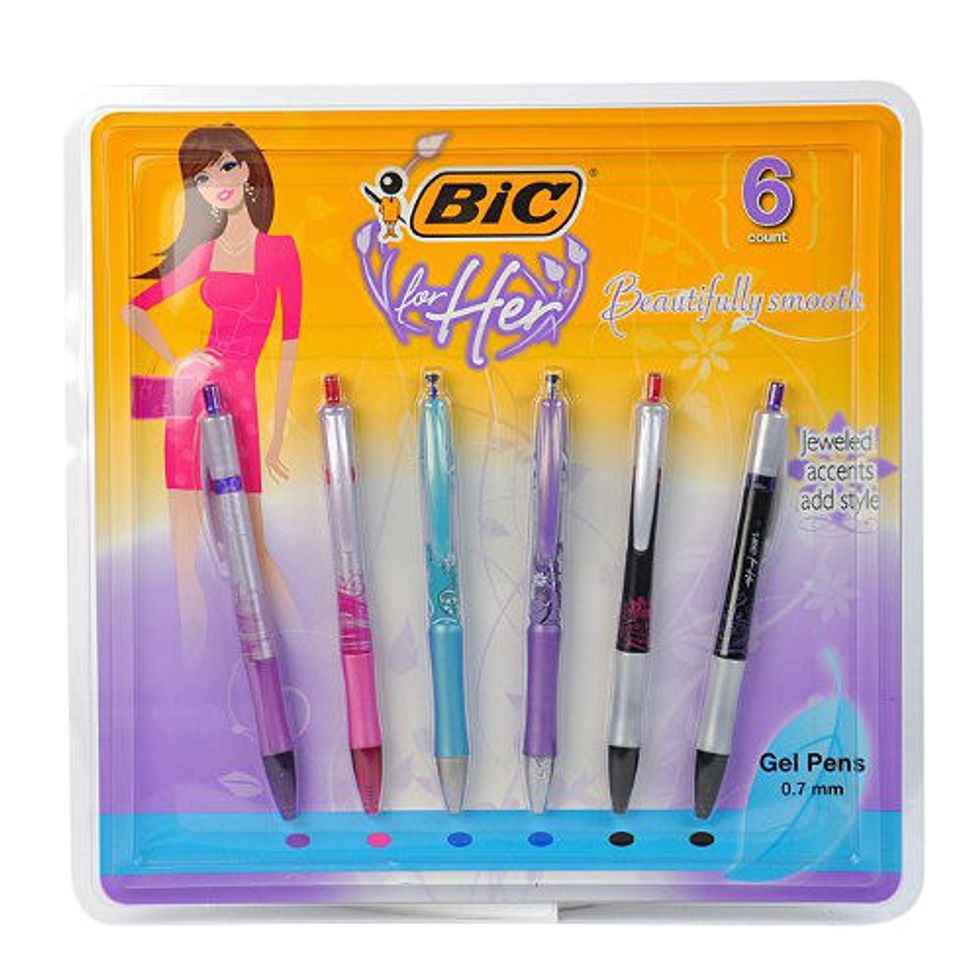Even the best of all social justice warriors don't always understand the complexities of gender. While most have previously used the terms "gender" and "sex" synonymously, various social justice movements have caused a shift in the accepted definition of both terms. While ones biological sex is still defined as the individuals' status as male or female at birth, gender has taken on a whole new complexity, with discussions of gender roles, non-binary genders and transgender identities. With these discussions, the conventions of gender in society often come into question as well; specifically, which roles each gender should/do play in society, how relationships function with nontraditional gender identities, and the presence of gender-targeted items and products. While people seem to have definite ideas about the former two concepts, there is gray area as to what products necessitate gender-specificity and which do not. The question is, then, when is it acceptable to target a specific sex/gender in the marketing of a product?
The issue is, such as with most social discussions, there is no specific answer.
If one has used products such as sunblock, shampoo, razors, or other hygiene products, there is a good chance the product was marketed to a specific gender, either through advertisements, color association, or labeling. In addition to hygienic products, many toys, clothes, household items and sometimes office supplies (everyone has probably seen the infamous Bic ® for Her pens, which write beautifully smooth and have jeweled accents for style) are often marketed specifically to men or women. While there is a viable argument as to the presence of gender-specificity in hygiene products, the implications of marketing toys and other everyday products to one specific gender highlight underlying archetypes for members of each binary gender, as well as leaving non-binary folks disenfranchised.
When it comes to hygienic products, marketing to certain genders is arguably acceptable (without insinuations that men are dominantly sports-oriented or that women are the daintier sex). Biologically speaking, men and women undergo different physiological processes. Men, on average, sweat more, so a sweat resistant sunscreen marketed for use by men is an acceptable practice.
The issue with gender marketing in this regard is not the acknowledgement of the physiological differences between the two biological sexes, but the implications that these products may have on gender roles, and the belief that men and women cannot use products marketed to the opposite sex. If a man wants to smell floral, seeing as women's shampoos/body washes seem to have those scents more often, there should be no shame in using those products. (Author's note: if anything, more men's products should utilize floral scents. Flowers smell good! We should all smell like flowers!) If a woman wants to use sweat resistant sunscreen marketed towards men because she sweats more than average for a woman, she should be able to utilize those products without concern. We cannot change that there are different physiological traits between the sexes, and companies should be able to sell products targeting these physiological differences, but shaming people for using products outside of their sex is nonsensical.
The main problem with gender marketing in products is the specification of gender in products where it should have no place. While most people say that girls gravitate towards fashion and dolls, while boys gravitate towards more violent video games and sci-fi action figures, that is mostly a product of social conditioning rather than innate inclinations towards a specific genre of toy. This trend also continues into clothes, and one can find vastly different clothing in the men's section of a department store than in a women's section. Clothes, toys and other related products, serve the same purpose for both genders, and therefore do not require specificity in their marketing or focus. To market a specific item or line of clothing to one sex inadvertently contributes to the idea that men cannot wear items of clothing traditionally meant for women, and vice versa. The notion that gender roles should be applied to products, outside of the need for products marketed for different physiological needs by sex, is absurd.
Different organizations and corporations, most notably Target, have already made it a point to take away gender labels from some of their products. While still selling the same products, these stores no longer assign gender to specific objects, including clothes and toys. With a simple move such as this, there is a message being sent: one's biological sex and identified gender should have no impact on ones product choices, and marketing unnecessary objects to males or females specifically contributes to the existence of rigid gender roles.
Marketing to a specific biological sex in hygiene products ensures the best care for members of that sex. Marketing to a specific gender in unnecessary products contributes to a society where each gender is limited in their expression. It is important to remember the difference between the two.

























